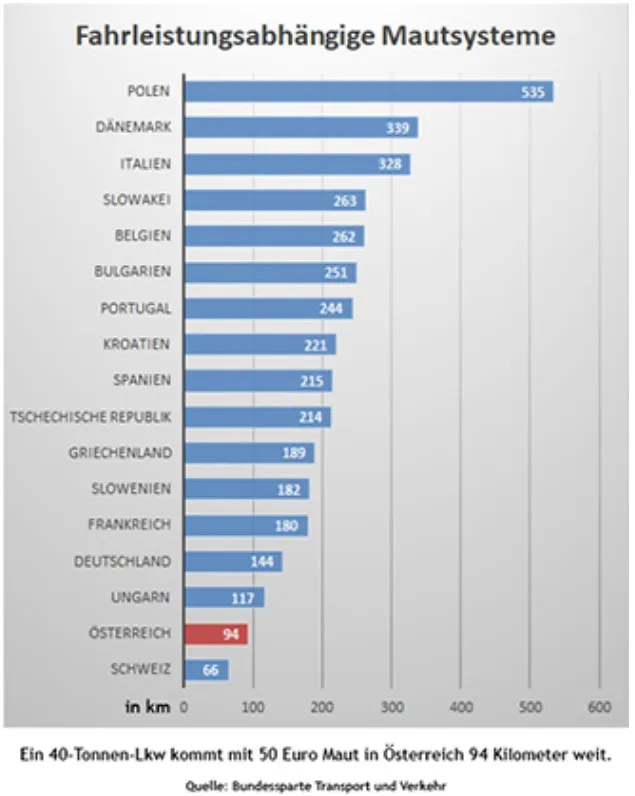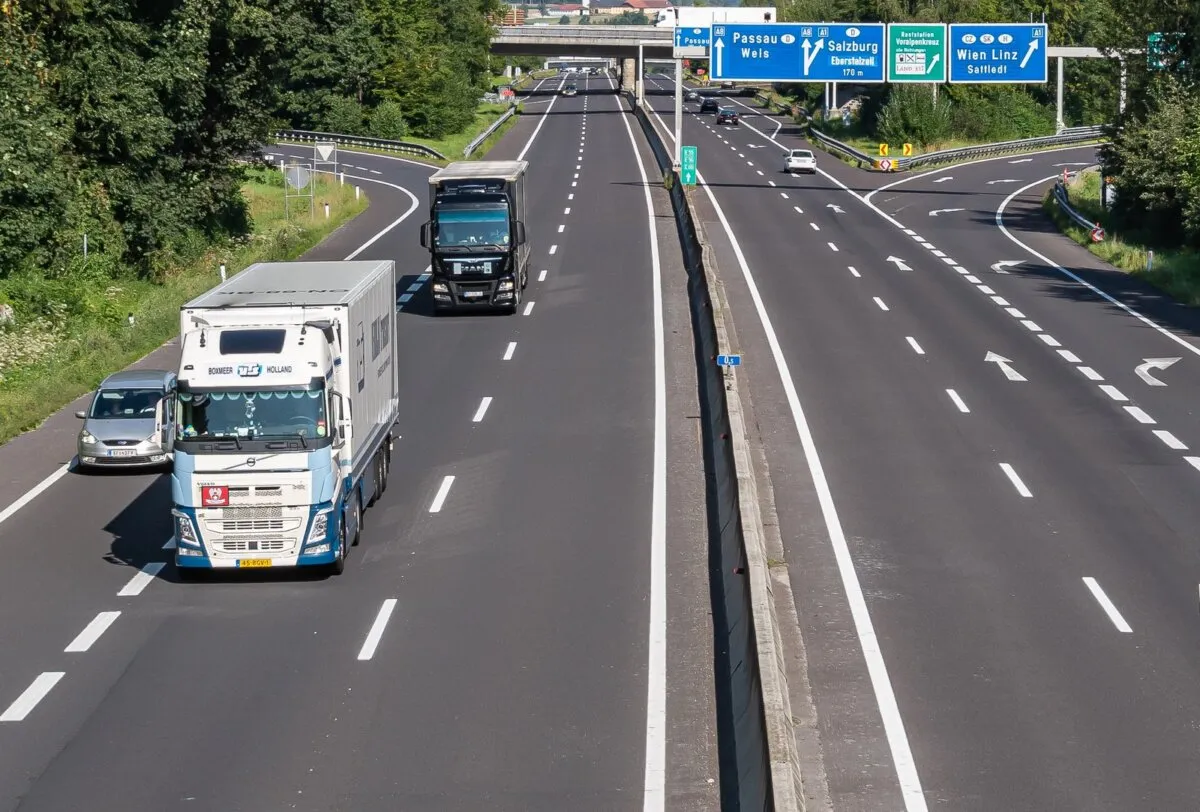As Austria grapples with its third consecutive recession, and inflation rose to 3.3% in June, the government is planning drastic increases in road tolls for trucks. The Ministry of Transport’s proposals include not only indexation of rates but also a further increase in the CO2 emission fee. These decisions are drawing opposition from Austrian business representatives, including the Upper Austrian Chamber of Commerce (WKOÖ).
“A blow to competitiveness and an increase in prices for consumers”
WKOÖ President Doris Hummer and Wolfgang Schneckenreither, chairman of the transport and road traffic department, warn that the planned increase of around 13 percent in 2026 could weaken the economy and further fuel inflation. They believe that logistics companies will be forced to pass on rising costs to customers in the trade and manufacturing sectors, and ultimately to consumers.
“Excessively high costs of doing business are already forcing companies to move production abroad. Another increase will only accelerate this trend,” Hummer emphasizes.
92,000 euros per year for a 40-ton set
Currently, the annual toll cost for a 40-ton truck in Austria is approximately €81,000. After the planned increase, this amount will increase to approximately €92,000. By comparison, in Germany, the same fee allows for a 50% longer journey.
WKOÖ compares road tolls in various European countries using a 40-ton truck as an example. Here’s how many kilometers a 40-ton truck can travel for the equivalent of €50:

“Austria already has the highest rates in the entire EU. This is a serious barrier for local carriers and manufacturing companies,” comments Schneckenreither. In Poland, fees are almost six times lower.
Toll over actual costs
According to an analysis by Prognos, road tolls collect €1.7 billion annually, which is 20 percent more than the cost of maintaining Austrian infrastructure. The state collects an additional €500 million annually from VAT and ASFINAG dividends. At the same time, the WKOÖ refuses to disclose the calculation of the tolls.
Appeal to suspend price increases
WKOÖ appeals to the Ministry of Transport to maintain the current rates until 2026, cancel the planned CO2 increase and suspend the indexation of fees.
“We also demand disclosure of the tariff calculations,” says Schneckenreither.
“In the current economic climate, further burdening transport is a road to nowhere,” adds Hummer.
This is another wake-up call for the TSL industry in Austria. Growing financial burdens, regulatory uncertainty, and a lack of transparency in pricing policies pose real threats to the sector’s future.









